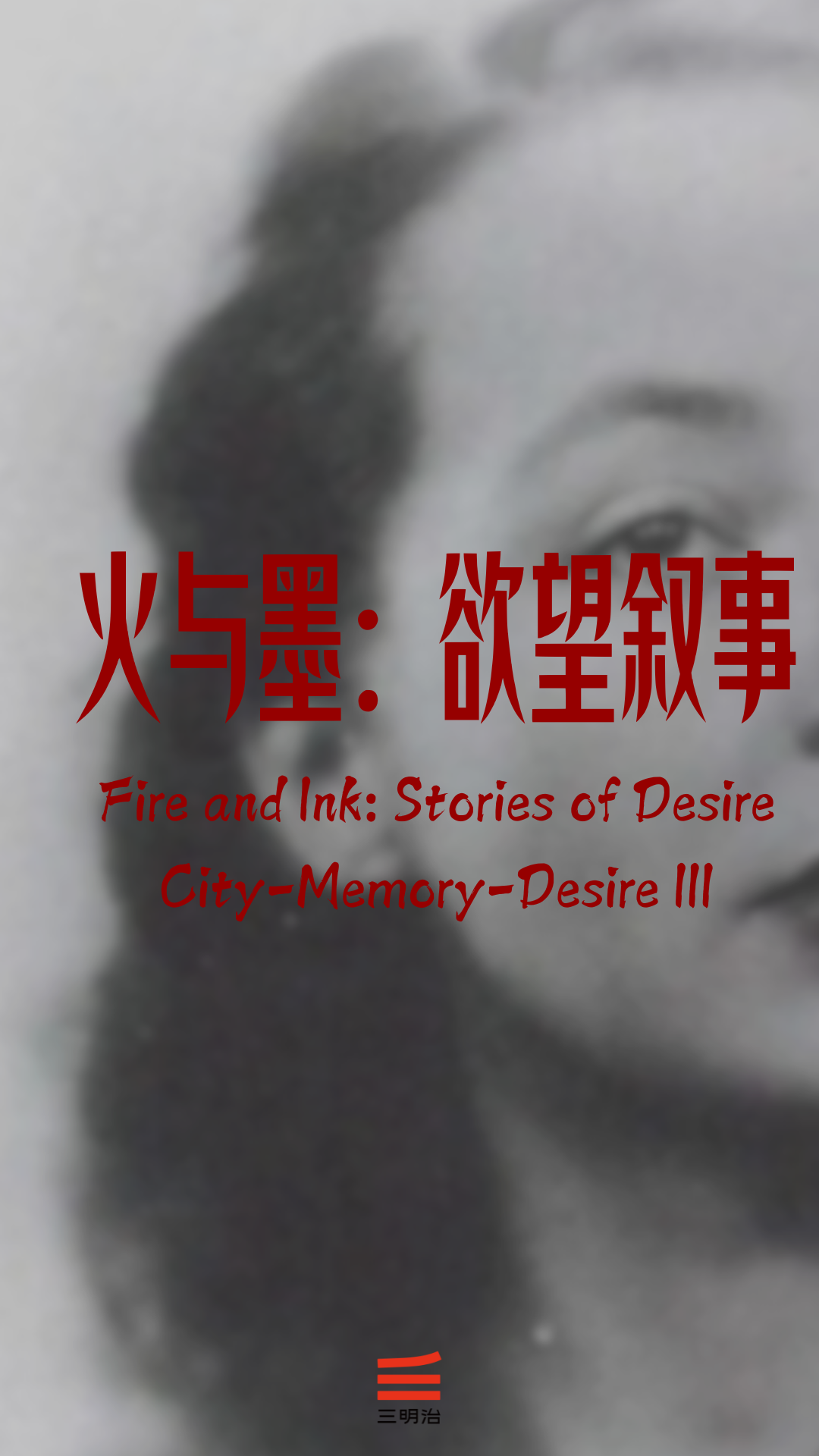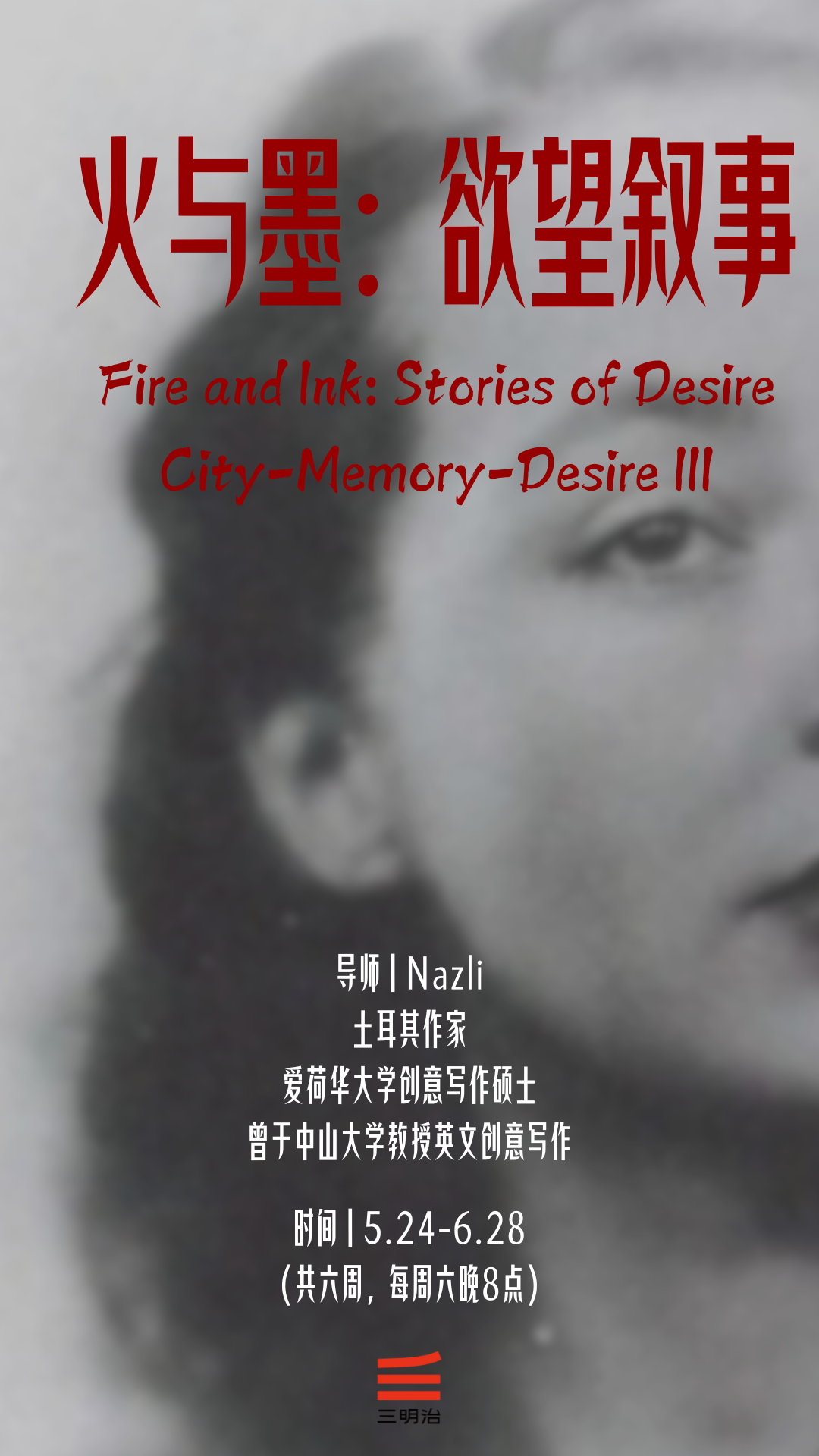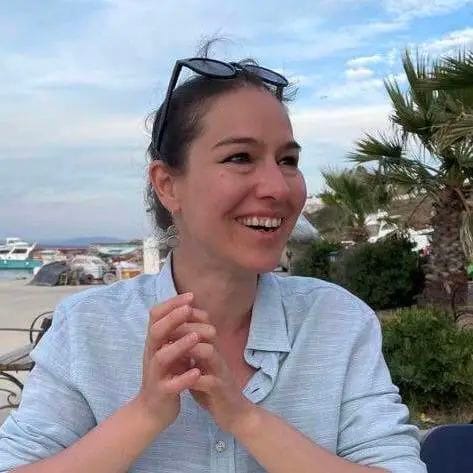Fire & Ink: Writing Desire with Duras|SanMingZhi Workshop
Learn how to write desire with Marguerite Duras

Marguerite Duras’ The Lover is a classic meditation on love and desire, colonialism and class, identity and otherness, Saigon and Paris.
In prose that is both scorching and delicate, Duras writes of a love that spans a lifetime—at once passionate and quiet, affirming and annihilating. She speaks of the unspeakable in silence, harnessing the full force of what is left unsaid.
Desire is fire. Writing is ink.
In Duras’ fevered language, love and longing are never whole—they are fractured, contradictory, soaked with the humidity of the colony and veiled by the cold fog of Paris. And in that brokenness, they come closer to life itself.
Our old friend Nazli returns this May with the third chapter of our Cities · Memory · Desire workshop series—this time, centring on desire.
Now expanded to six weeks, the workshop includes four sessions of close reading and two sessions of writing and feedback. We continue exploring how literature and life mirror each other, how cities, memory, and longing intertwine.
We will read The Lover—both the novel and its film adaptation—alongside selected works by Baudelaire, Rimbaud, Cavafy, and Ocean Vuong. Through side-by-side analysis of text and image, we’ll closely examine narrative scenes and poetic fragments.
Each session has a dedicated soundtrack featuring Leonard Cohen, whose burning lyricism echoes Duras’ writing in surprising ways.
In this journey of writing desire, film will show us how to use image, closed space, and cityscape. The novel will teach us how to sift details, reconstruct memory, and name emotion.
We’ll learn to peel back personal narrative from collective sensual experience. Poetry and music will be not just inspiration, but sharp tools to help us find language that is precise, beautiful—and sometimes, like a blade.
The craft portion will draw from Duras’ Writing and Verlyn Klinkenborg’s Several Short Sentences About Writing. For extended reading, we offer Roland Barthes’ A Lover’s Discourse and Michel de Certeau’s The Practice of Everyday Life.

✍️ Complete Your Own Work of Writing
By the end of the course, each participant will submit a draft of an original English-language piece—fiction or creative nonfiction (1,000–5,000 words, approx. 15 pages).
Instructor Nazli will provide detailed, individualized written feedback for every student.
Workshop Highlights
Small Group, Live Online Classes
Weekly live sessions (max. 30 students) via video call, with real-time instruction and discussion.
Close Reading of Original English Texts
One week before each session, Nazli will share selected texts by relevant authors, along with guiding questions to help you read deeply and broadly—feeding your own writing with literary insight.
Weekly Writing Exercises
Each session ends with a writing prompt designed to expand your creative practice and help you apply what you’ve learned in class.
One-on-One Voice Consultation
In the final week, after submitting your draft, you’ll schedule a personal voice consultation with Nazli to discuss your work, revisions, and next steps.
Publication Opportunities
Outstanding works may be published on international platforms or featured on Sanmingzhi’s official account.
Schedule
Week 1 Image and Memory
• Class Objective: To learn the ways in which desire and memory are connected, how certain images represent certain times of one’s life, how the poetic reach of memory creates connections in the narrative, and how to turn oneself into an image.
• Required Reading: The Lover by Marguerite Duras, part 1 of 4; Selected poems by Ocean Vuong, Donna Stonecipher, Constantine Cavafy
• Voluntary Reading: A Lover’s Discourse by Roland Barthes, following entries: to be engulfed, absence, waiting, heart, body, writing, mad
• Class Soundtrack: “Dance Me to The End Of Love” by Leonard Cohen
Week 2 The Sexual and The Sensual
• Class Objective: To learn how to write sexual encounters and sensual descriptions that are powerful and personal as opposed to mainstream and clichéd, to leave space in writing that allows for implication while keeping the reader anchored in the text, and to combine the body with the mind, the carnal with the philosophical.
• Required Reading: The Lover by Marguerite Duras, part 2 of 4; Selected poems by Constantine Cavafy, Arthur Rimbaud, Yves Bonnefoy
• Voluntary Reading: Practice of Everyday Life by Michel de Certeau, Chapter VI Story Time
• Class Soundtrack: “Suzanne” by Leonard Cohen
Week 3 The City as a Landscape of Desire
• Class Objective: To learn how a city alters our experience of desire, the ways in which desire and the city are connected and how this connection affects our narratives of identity and desire, how to link the city’s architecture to desire, and how said architecture allows or restricts seeing, secrets, and storytelling.
• Required Reading: The Lover by Marguerite Duras, part 3 of 4; Selected poems by Charles Baudelaire, Donna Stonecipher, Ocean Vuong
• Voluntary Reading: Practice of Everyday Life by Michel de Certeau, Chapter VII Walking in the City
• Class Soundtrack: “Famous Blue Raincoat” by Leonard Cohen
Week 4 Death and Departure
• Class Objective: To learn how the end of an event, a relationship, an era, or a story arrives, in life and in writing, the literal and metaphorical meaning of death in love and desire, how to write endings that strengthen the story further, how to deepen the symbols for death and departure.
• Required Reading: The Lover by Marguerite Duras, part 4 of 4; Selected poems by Constantine Cavafy, Charles Baudelaire, Arthur Rimbaud
• Voluntary Reading: A Lover’s Discourse by Roland Barthes, following entries: image, I-love-you, magic, night, ravishment, scene, tenderness
• Class Soundtrack: “Chelsea Hotel #2” by Leonard Cohen
Week 5 Practical Realities of Wrong Assumptions About Writing
• Class Objective: To reexamine our beliefs and expectations of writing, and to recalibrate them in the light of essays and lessons of writers. We may be romantics as writers, but the reality is all the more inspiring!
• Required Reading: Selections from Writing by Marguerite Duras
• Voluntary Reading: Selections from Several Short Sentences About Writing by Verlyn Klinkenborg
• Class Soundtrack: “A Thousand Kisses Deep” by Leonard Cohen
Week 6 Editing Lecture
• Class Objective: To learn how to edit, the different ways of editing one’s own work, how each piece requires a new set of rules for revision, and the potential and promise of revision. Followed by a question-and-answer session for any writing questions students have.
• Required Reading: Selections from Several Short Sentences About Writing by Verlyn Klinkenborg
• Voluntary Reading: Selections from Writing by Marguerite Duras
• Class Soundtrack: “Ain't No Cure For Love” by Leonard Cohen
Guidelines
I will encourage and expect personal interpretations from all of you, which means you will have to trust yourself and give up the temptation to support your ideas with secondary sources. Just as importantly, you will listen to and work with other interpretations that may be very different from yours with maturity and respect. In my classes, all interpretations, comments, questions, and mindful musings are valid and encouraged as long as they are respectful and honest, and do not attack a person, race, or sexual orientation. We want to learn how to interpret texts in intellectual and creative ways even when the approaches may be much different than our own. I hope that the texts I provide and our reading discussions will help create the personal foundations of literary taste in each of you. When you learn to recognize good literature, you come that much closer to creating it.
Office hours
I am always here to talk! I will be available on Wednesdays and/or any other day that might work better for you. Remember to make an appointment, and we’ll take it from there. You may use office hours to ask questions about my comments and suggestions for your writing, to ask and share questions and observations about the readings, and much more. It’s my pleasure to continue our conversation outside the virtual classroom.
About Nazli

Nazli is a Turkish writer and translator with an MFA in Nonfiction Writing from the University of Iowa and a B.A. in English & Creative Writing from Gettysburg College. She also studied art history and oil painting in France.
She previously taught Shakespeare and English writing at Sun Yat-sen University in China, and has translated and published three YA novels into Turkish. As a former volunteer at The Iowa Review, she is deeply engaged with both the writing and editorial process.
Nazli now works as a freelance writer and educator, offering online workshops that explore fiction and nonfiction across cultures, forms, and sensory experiences. Over the past four years, she has guided more than 500 original student works, with workshop topics ranging from Poe and Borges to Woolf, Irish writers, writing in a second language, memory, and the five senses.
Follow her reflections and reading life at waysofblackink on WeChat official account.
When
From May 24 to June 28
Join us every Saturday at 8 PM (Beijing time)
Live on Zoom — each session runs about 90 minutes, and yes, recordings will be available if you miss one.
Who Can Join
We’ll open the workshop with a minimum of 6 participants, and we’ll keep the group intimate — no more than 30 people.
Spots are limited and may fill up quickly.
Language
The workshop is taught in English, and writing assignments will be in English too.
But don’t worry — you can start in Chinese and translate. As long as you have basic English reading, writing, and listening skills, you’ll be just fine.
How to Sign Up
Add us on WeChat: Sandwichina to register or ask questions.
Notes
- Returning participants from the previous two workshops are eligible for a special discounted price. Please contact Sandwichina (WeChat) to register.
- All course materials are for enrolled students only. Sharing materials externally is strictly prohibited and may result in immediate removal from the course.
- No refunds will be issued once the course begins. If you choose to withdraw before the course starts, 80% of the payment will be refunded; 20% will be retained as an administrative fee.
